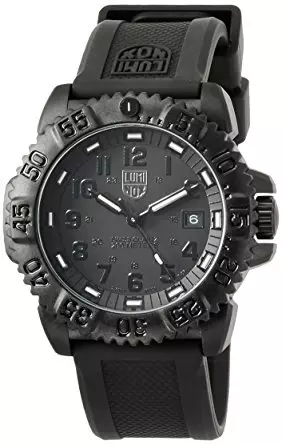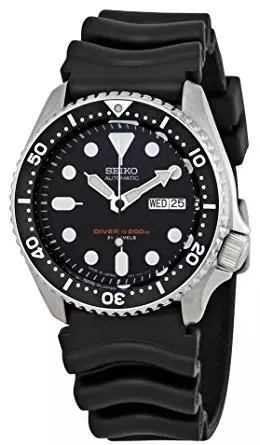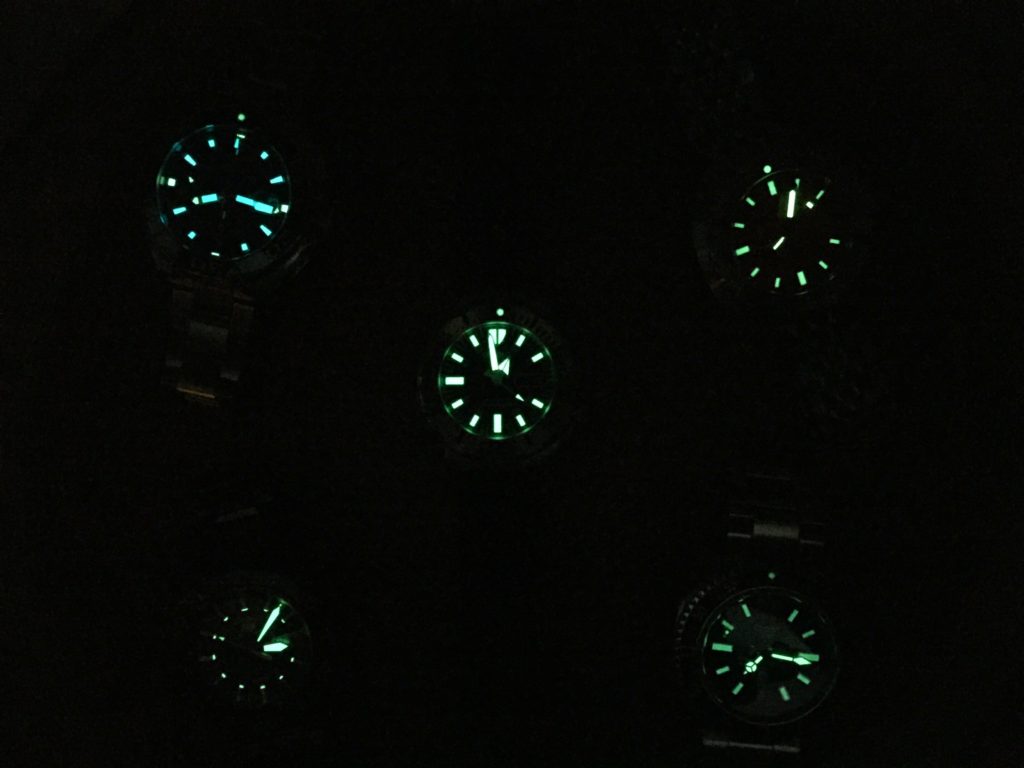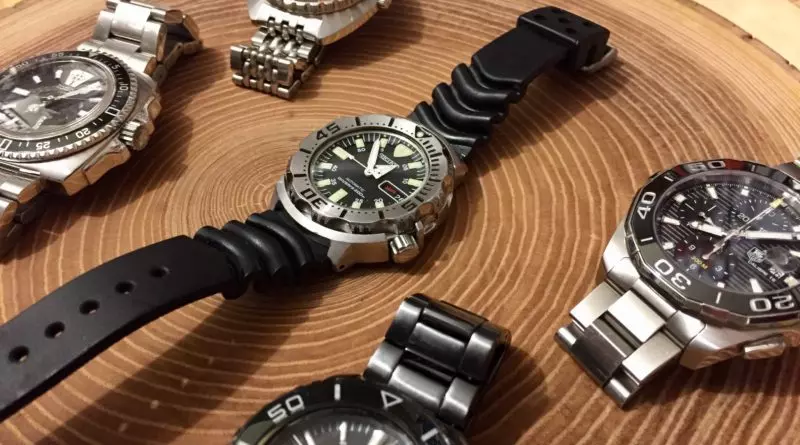The Mechanical Dive Watch – Perfect for Field and EDC.
If you’re under 40 years old, the odds are that you don’t wear a watch. Many today think, “I have a phone, what do I need a watch for?” Well, if you never venture beyond your cubicle or apartment you’re right, you probably don’t need one. But, if you’re a hunter, you need a good watch. When you’ve got both hands full with a bow or rifle, you’re not going to be able to reach into your pocket and pull out that cellphone to check the time, Plus it’s a lot of extra and unnecessary movement. With a watch, it’s a quick and convenient glance to check the time. When it comes to watches for hunting, and everyday wear, my personal preference is a rugged dive watch with a good automatic mechanical movement of Swiss or Japanese design. Let’s take a look at your options for a quality Automatic Mechanical Dive watch for EDC and field use.
Watch Movements
First, we need to look at the movements. Movements are essentially the engine of the watch. There are two basic types of watch movements Quartz and Mechanical and they both have their merits.
Quartz Watch Movements
Quartz is one of the most common minerals on Earth. The interesting thing about quartz is that it’s piezoelectric. That means if you apply pressure to a quartz crystal, it generates a tiny electric current. Conversely, if you pass electricity through quartz, it will vibrate at a precise frequency.
Inside a quartz watch, the battery sends electricity to the quartz crystal. The quartz crystal oscillates (vibrates back and forth) at a precise frequency. The circuit counts the number of vibrations and uses them to generate regular electric pulses, one per second. These pulses drive a small electric motor that turns gear wheels that spin the clock’s second, minute, and hour hands.

Quartz Watch Movement Benefits
- Accuracy. Watches with quartz movements are among the most accurate that you can find. A $200 quartz watch can actually keep more precise time than a $5,000 automatic movement watch.
- Cost. Quality quartz watches usually will cost significantly less than a similar watch with an automatic mechanical movement.
Quartz Watch Movement Drawbacks
- Batteries die at inopportune times. I can remember several occasions when my watch battery died when I’ve been on a trip.
- The only way to replace the battery is to open the case and break the watertight seal. Most places that replace watch batteries do not properly reseal and pressure test.
- Quartz watches do not typically have the longevity that mechanical watches enjoy.
Mechanical Watch Movements
The Mechanical movement preceded quartz technology by close to one thousand years. Unlike quartz or digital watches, which require a battery to run, mechanical movements harness the energy stored in a wound mainspring. There are two types of mechanical watches, manual and automatic. A manual mechanical watch requires the wearer to wind the watch on a daily basis. In automatic watches, there is a flat blade positioned in the back of the movement that swings back and forth as the wearer naturally moves his or her wrist throughout the day. As that blade swings and spins around it winds the mainspring of the watch.

Mechanical Watch Movement Benefits
- Longevity. An automatic mechanical watch will stay wound as long as you wear it, and can keep working with minimal maintenance for decades. You can pass down a high-quality mechanical watch for generations
- You’ll never have to replace the batteries.
- Value. A quality mechanical watch will maintain its value over time.
Mechanical Watch Movement Drawbacks
- Initial Cost. Automatic mechanical watches use expensive materials and require highly skilled labor to manufacture. That makes them more expensive than your typical quartz watch.
- Maintenance. Automatic watches are not completely maintenance-free. When they do require maintenance you typically have to send them to the factory for a tune-up that can run a few hundred dollars.
Why a dive watch?
Even though occasional snorkeling is as close as I come to diving, I have a strong preference for the dive watch style for a few reasons:
- They’re tough. Dive watches are built to withstand the high pressure of deep dives. This translates to a really rugged design.
- A common feature of the dive watch style is the rotating bezel that is usually marked in minute increments. It’s easier and faster to spin the bezel around to use as a timer than it is to pull out my phone.
- I personally like the look, and their larger case size is a better fit for my wrist.
- Luminescence. If I hit my watch face with a flashlight before I leave camp, I can read the time until first light without having to pull out my phone and light up the woods.

Top Brands of Automatic Mechanical Dive Watches to Consider
If I’ve convinced you to check out an automatic dive watch, here are a few favorite brands to consider from moderately priced to very expensive.
- Tag Heuer – Their Aquaracer line sports a super tough ceramic bezel
- Doxa – The iconic Orange faced dive watch is a favorite of Dirk Pitt, (and this author)
- Oris – has been making high-quality watches since 1904. I really like their Aquis Automatic
- Seiko – High quality and affordable. Check out their Prospex line
- Omega – If I win the lottery I’d love to have their Planet Ocean model
- Rolex – No list of watches would be complete without Rolex. Their Submariner sets the standard for ultra-premium dive watches
Note: Hunt Tested may receive a small commission if you purchase a product from the links on this page. This does NOT increase your price and helps to pay for the content you’re enjoying.

